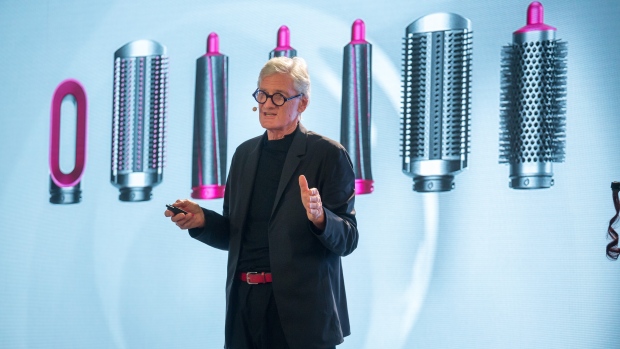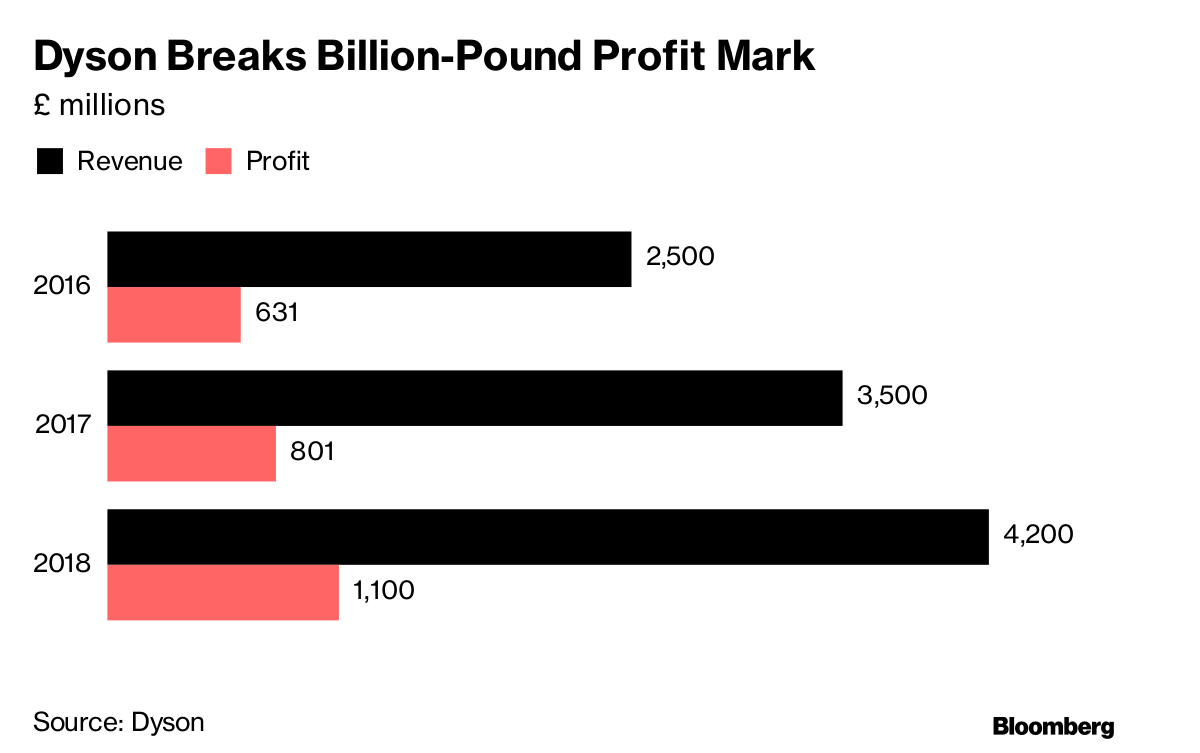Jan 22, 2019
Dyson shifts HQ to Singapore as Asia fuels electric car dreams
, Bloomberg News

Led by billionaire James Dyson, an ardent backer of Brexit, Dyson Ltd. has decided to relocate its head office to Singapore, in a blow to the U.K. government.
One of the largest British technology companies, Dyson has exploded in size over recent years, driven by a growing customer base in Asia. Known for vacuum cleaners and hand dryers, the firm has expanded into air purifiers and hair-care products, and embarked on a costly project to build an electric car by 2021.
Jim Rowan, Dyson’s chief executive officer, said in a call with reporters that the move to Singapore was not due to tax or fears of Brexit, but to the shift in the importance of the region to the company.
The announcement comes as the U.K. government scrambles to reassure businesses as uncertainty over Brexit continues. Singapore doesn’t have a single car-manufacturing plant and is one of the costliest places in the world to buy an automobile, but is home to the planet’s second-largest container port and a manufacturing hub for high-technology products such as Rolls Royce Holdings Plc aircraft engines.

Roland Krueger, president of Infiniti Motor Company Ltd. and a former Nissan Motor Co. executive, is set to join Dyson in April to oversee the business.
Revenue at Dyson reached 4.4 billion pounds for the year ended Dec. 31 2018, up 28 per cent, boosted by demand for new hair products. Revenue has increased 68 per cent over the past two years, with over 50 per cent of the company’s profits stemming from Asia. Alibaba Group Holding Ltd. said in November that some of its top-selling products during its annual Singles’ Day event came from Dyson.
Dyson is set to continue its investment into research and development, with plans to double the size of its Singapore Technology Center, and to invest "hundreds of millions of pounds" into robotics. Dyson has also approached the U.K. government over a 350 million-pound (US$453 million) expansion to its U.K. testing site.
Dyson is also continuing to roll out new products. The company is considering developing a wearable air purifier that could double as a pair of headphones, hoping to tap demand from pollution-choked cities in Asia, people with knowledge of the project said.


